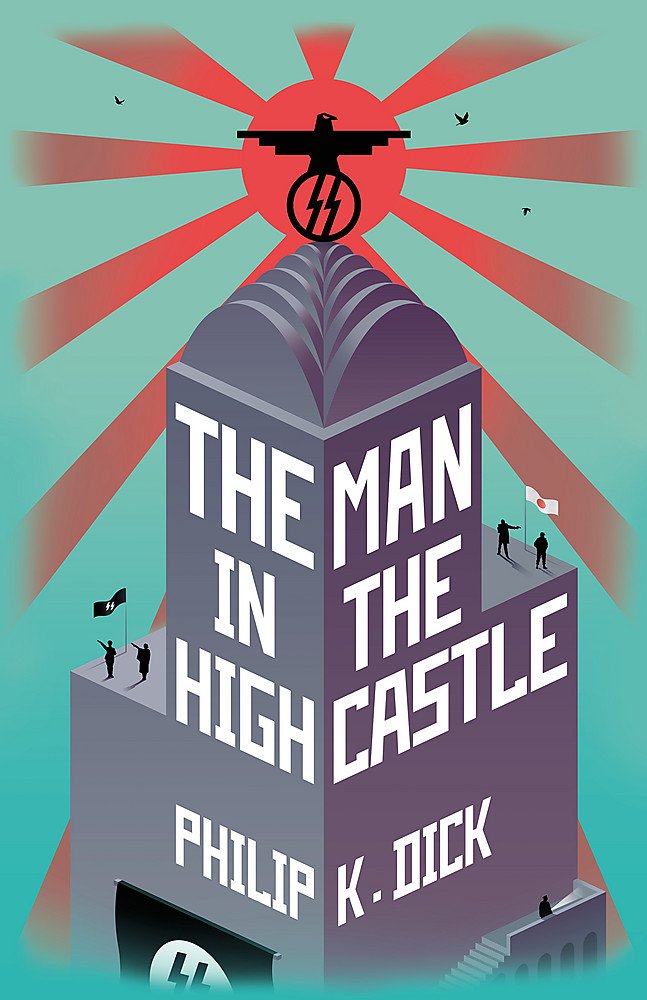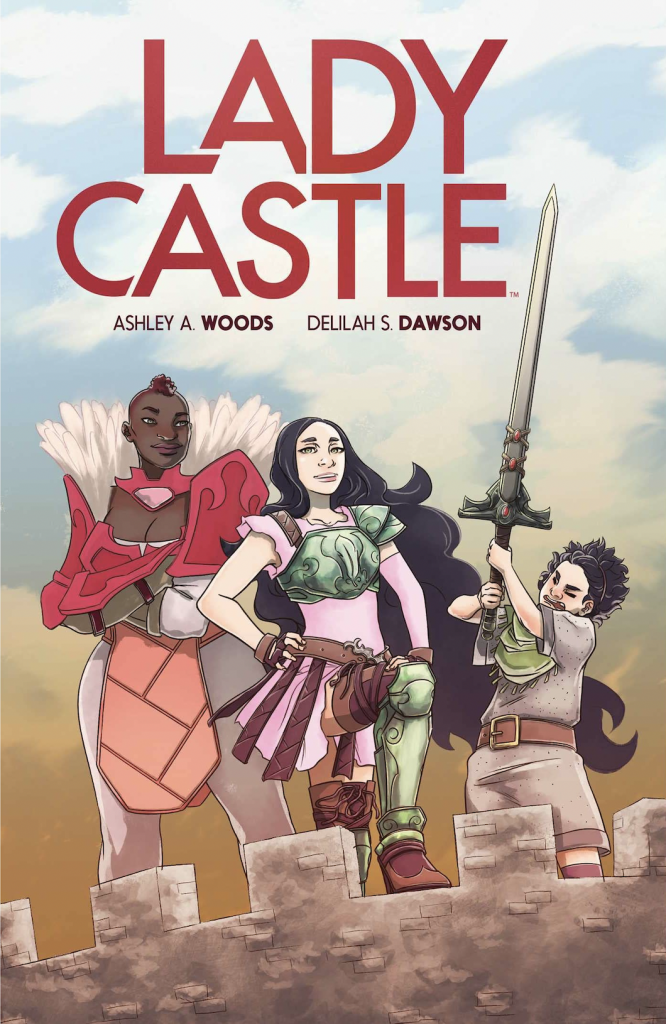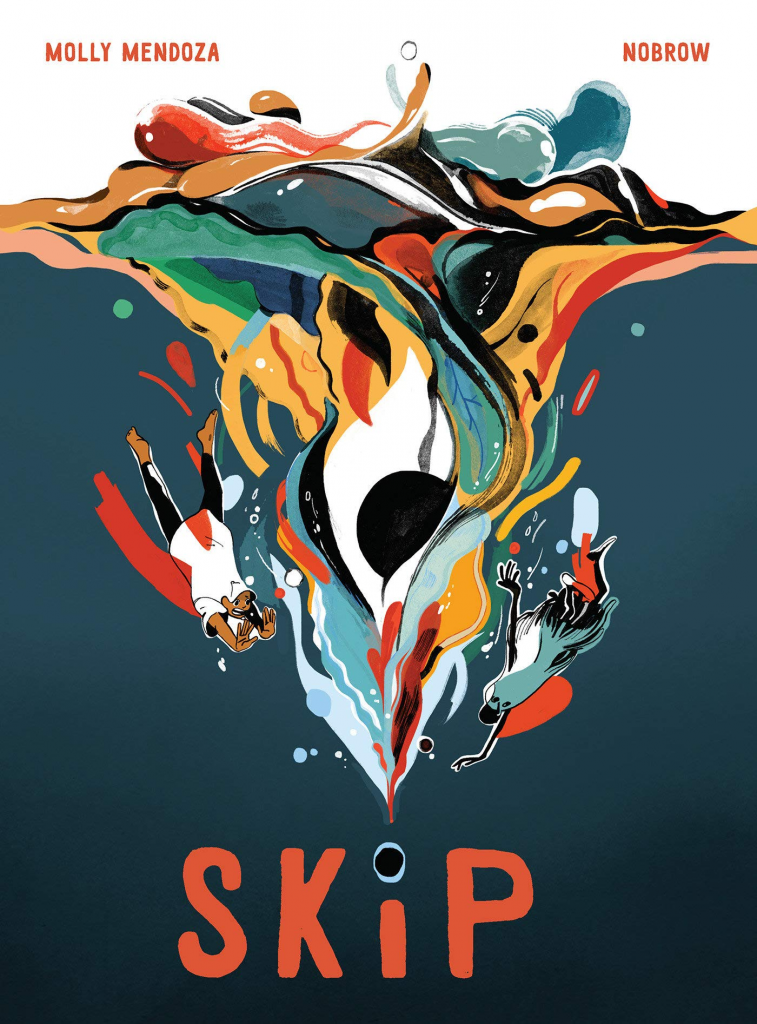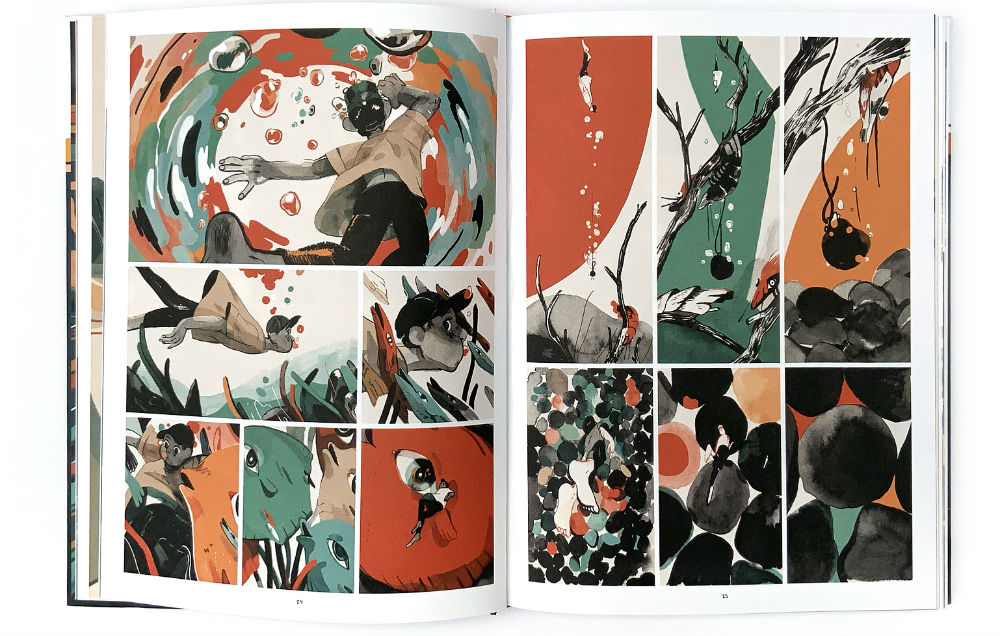The Man in the High Castle
Par Francesca Robitaille

Ce roman de Philip K. Dick présente une histoire alternative dans laquelle l’Axe devient le côté vainqueur de la Seconde Guerre mondiale. Malgré que l’œuvre ait remporté le Prix Hugo en 1963, j’ai trouvé que l’aspect science-fiction du livre manquait à l’appel.
Le roman suit plusieurs personnages de statut et d’origines variés, reflétant divers mondes sous la nouvelle réalité politique. Cependant, je les ai trouvés quelque peu retirés de la vie en société. À plusieurs reprises, j’ai eu du mal à entrevoir ce que voulait représenter l’auteur à travers son écriture. Cette dernière voile ma compréhension de l’histoire, et par conséquent, me détache du sort des personnages.
De plus, bien que l’art et les antiques puissent être un sujet fascinant, ils n’ont pas suscité mon intérêt dans ce cas-ci. J’étais déçue de ne pas retrouver plus de développement sur la question d’antiques frauduleux, sujet délaissé bien assez rapidement dès le début. Pour être honnête, je n’ai pas eu l’impression de bien comprendre ce que l’auteur désirait faire entendre au sujet de l’art tout au long de l’œuvre, et les personnages n’ont pas su me captiver suffisamment pour que j’aie envie de pousser ma réflexion plus loin.
Le complot d’espionnage du livre était beaucoup plus intéressant. Bien qu’ils se présentent sous de fausses identités, à travers les intentions des personnages se développent d’intrigantes questions politiques. Ces sections-là m’ont captivée et j’étais avide de savoir quels nouveaux desseins se dessineront. Sur ce point, le roman laisse assez de questions ouvertes pour que j’en vienne à mes propres conclusions, car, tout comme la majorité de la population, je ne suis pas informée de tous les motivations internes de quelque gouvernement.
Malgré ma déception sur cette œuvre, je crois qu’il pourrait être apprécié s’il se retrouve entre les bonnes mains. Si vous voulez un roman qui vous pousse à réfléchir sur l’art et la culture envisageable dans une Allemagne et un Japon victorieux suite à la Seconde Guerre mondiale, et que vous êtes prêt à faire vos propres recherches pour mieux comprendre le roman, je crois que The Man in the High Castle pourrait être pour vous. Si vous cherchez simplement de la science-fiction pour vous détendre, mieux vaut regarder ailleurs.
Lady Castle
By Magdalena Nitchi

Delilah S. Dawson’s Ladycastle is a delightful fantasy comic book, perfect for some light reading. When all the men of Mancastle are eaten by a dragon and leave the kingdom a cursed beacon for monsters, the women they left behind will have to take up arms to defend themselves. The blacksmith Merinor, given a mighty sword by the Lady of the Lake, is now king of the newly-dubbed Ladycastle. With the previously-captive princess Aeve as her captain, King Merinor must do her best to defend her people.
I enjoyed reading Merinor, Aeve, and Aeve’s younger sister Gwyneff’s perspectives on each new monster that plagues the kingdom. All of these characters struggle to cope with the changes around them; Merinor and Aeve are burdened by the weight of their new responsibilities, and Gwyneff grieves the sudden death of her father, whom she still loved even after he locked her sister away.
While I enjoyed how the three protagonists are written, I found the backstories of many of the side characters to be quite similar. It seems that every woman in the town—from the wheelchair-bound librarian confined to the dungeon to the blacksmith who takes up the mantle of king—was told by their husband that they were lesser solely because of their gender. Reading the same sad story of how they were pushed to the side over and over became tedious, especially in such a short comic. I was also hoping for queer representation, since it is a village of only women, but perhaps that will hopefully be expanded upon with a sequel.
Despite this, I did enjoy how the women got around the kingdom’s curse and defeated the monsters. I always enjoy a fairy tale with some loopholes, and the inventive solutions the women came up with when they were outnumbered in battle were creative and well thought-out.
Overall, Ladycastle is a fun, mostly-lighthearted fantasy adventure. The illustrations are excellent; the colour palette is bright and eye-catching, and all of the characters have unique designs. Even if I felt there were places where Dawson could have expanded the story or the characters’ personalities, I still enjoyed what was on the page. If you are looking for a feminist retelling that flips classic fairy tale tropes on their head, I would recommend checking this comic out.
Skip
By Olivia Shan

Re-released this past summer in a vibrant new paperback edition, Molly Mendoza’s 2019 graphic novel Skip is a delightful and rather underrated gem not to be missed this holiday season.
In Skip, we meet two young exiles who come together in an unlikely and epic friendship that sees them hop through dimension after dimension. Skip’s themes of friendship and coming-of-age are simple and easily relatable, and the story doesn’t always take itself too seriously, often playing with the boundaries of reality. Despite its generally light tone, the bond between the protagonists Bloom and Gloopy is sincere and treated with obvious care and respect.
Drop-dead gorgeous visuals further elevate Skip’s strong narrative core. Mendoza’s work puts the ‘graphic’ in ‘graphic novel’; reading her book feels like flipping through the storyboard of an award-winning animated feature. Mendoza’s idiosyncratic style is bright, psychedelic— even haunting, at its best. The worlds that compose Skip are overwhelmed with raw, barely-contained emotion, conveyed in bold colours that seem to want to burst out from the very confines of the book itself. Basking in the fine and generous details of its page spreads makes it worthwhile in of itself.
Because of this, I think of Skip not only as an excellent graphic novel but also as one of the most giftable books published in recent years. Its accessible story can appeal to all ages, and its evocative visual flair is sure to win the hearts of anyone with a penchant for art and design. As the final days of autumn come to an end, do yourself a favour: pick up a copy of Skip, get comfortable, and immerse yourself in its imagination and whimsy.

